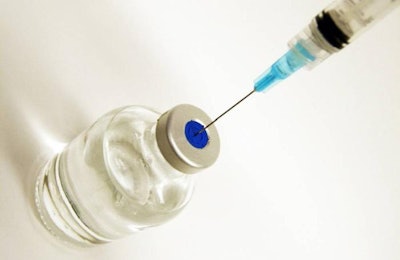
The U.K.'s Roslin Institute has announced new transgenic chicken lines that can produce proteins in their eggs for the treatment of arthritis and some cancers.
The institute says its latest work optimizes and validates a transgenic chicken system for the cost-effective production of pure, high-quality, biologically active protein for therapeutic and other applications and that as few as three eggs from these birds can produce a clinically relevant dose.
While commercial drug production in eggs remains some time away, the work has offered proof of principle that the system is feasible and that it could easily be adapted to other therapeutic proteins.
Several research bodies have looked at genetically modifying chickens for production of proteins, including Japan’s National Agricultural and Food Research Organization. However, Roslin notes the chicken has lagged behind in bioreactor development, despite it offering several potential advantages. Various mammals have been used, but producing transgenic birds has proved difficult.
100 times cheaper than conventional methods
Producing therapeutic proteins in the egg white of transgenic birds, however, could substantially lower the costs across the entire therapeutic production cycle, particularly when compared with cell culture systems.
The Roslin team has initially focused on two proteins that are essential to the immune system and that have therapeutic potential: a human protein called IFNalpha2a, which has powerful antiviral and anti-cancer effects, and the human and pig version of a protein called macrophage-CSF, which is being developed as a therapy that stimulates damaged tissues to repair themselves.
As few as three eggs were enough to produce a clinically relevant dose of the drug and, given that chickens can lay up to 300 eggs a year, the researchers say that their approach could be more cost effective than other production methods for some important drugs.
The approach is said to be more efficient and to deliver better yields than producing in other animal species which, if and when commercialized, would make treatments more affordable and open up new markets in developing countries.


















